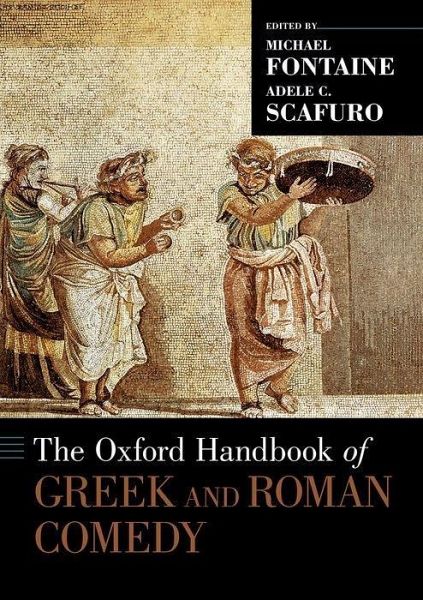Nicht lieferbar

Oxford Handbook of Greek and Roman Comedy
Versandkostenfrei!
Nicht lieferbar
In recent decades literary approaches to drama have multiplied: new historical, intertextual, political, performative and metatheatrical, socio-linguistic, gender-driven, transgenre-driven. New information has been amassed, sometimes by re-examination of extant literary texts and material artifacts, at other times from new discoveries from the fields of archaeology, epigraphy, art history, and literary studies. The Oxford Handbook of Greek and Roman Comedy marks the first comprehensive introduction to and reference work for the unified study of ancient comedy. From the birth of comedy in Greec...
In recent decades literary approaches to drama have multiplied: new historical, intertextual, political, performative and metatheatrical, socio-linguistic, gender-driven, transgenre-driven. New information has been amassed, sometimes by re-examination of extant literary texts and material artifacts, at other times from new discoveries from the fields of archaeology, epigraphy, art history, and literary studies. The Oxford Handbook of Greek and Roman Comedy marks the first comprehensive introduction to and reference work for the unified study of ancient comedy. From the birth of comedy in Greece to its end in Rome, from the Hellenistic diffusion of performances after the death of Menander to its artistic, scholarly, and literary receptions in the later Roman Empire, no topic is neglected. 41 essays spread across Greek Comedy, Roman Comedy, and the transmission and reception of Ancient comedy by an international team of experts offer cutting-edge guides through the immense terrain of the field, while an expert introduction surveys the major trends and shifts in scholarly study of comedy from the 1960s to today. The Handbook includes two detailed appendices that provide invaluable research tools for both scholars and students. The result offers Hellenists an excellent overview of the earliest reception and creative reuse of Greek New Comedy, Latinists a broad perspective of the evolution of Roman Comedy, and scholars and students of classics an excellent resource and tipping point for future interdisciplinary research.



